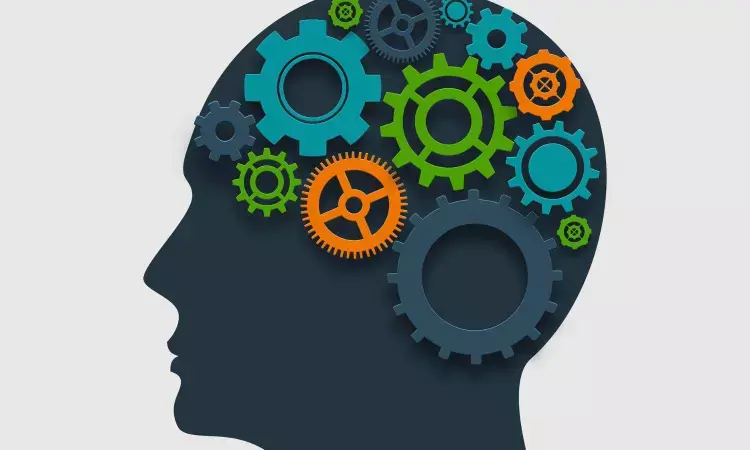- Home
- Medical news & Guidelines
- Anesthesiology
- Cardiology and CTVS
- Critical Care
- Dentistry
- Dermatology
- Diabetes and Endocrinology
- ENT
- Gastroenterology
- Medicine
- Nephrology
- Neurology
- Obstretics-Gynaecology
- Oncology
- Ophthalmology
- Orthopaedics
- Pediatrics-Neonatology
- Psychiatry
- Pulmonology
- Radiology
- Surgery
- Urology
- Laboratory Medicine
- Diet
- Nursing
- Paramedical
- Physiotherapy
- Health news
- Fact Check
- Bone Health Fact Check
- Brain Health Fact Check
- Cancer Related Fact Check
- Child Care Fact Check
- Dental and oral health fact check
- Diabetes and metabolic health fact check
- Diet and Nutrition Fact Check
- Eye and ENT Care Fact Check
- Fitness fact check
- Gut health fact check
- Heart health fact check
- Kidney health fact check
- Medical education fact check
- Men's health fact check
- Respiratory fact check
- Skin and hair care fact check
- Vaccine and Immunization fact check
- Women's health fact check
- AYUSH
- State News
- Andaman and Nicobar Islands
- Andhra Pradesh
- Arunachal Pradesh
- Assam
- Bihar
- Chandigarh
- Chattisgarh
- Dadra and Nagar Haveli
- Daman and Diu
- Delhi
- Goa
- Gujarat
- Haryana
- Himachal Pradesh
- Jammu & Kashmir
- Jharkhand
- Karnataka
- Kerala
- Ladakh
- Lakshadweep
- Madhya Pradesh
- Maharashtra
- Manipur
- Meghalaya
- Mizoram
- Nagaland
- Odisha
- Puducherry
- Punjab
- Rajasthan
- Sikkim
- Tamil Nadu
- Telangana
- Tripura
- Uttar Pradesh
- Uttrakhand
- West Bengal
- Medical Education
- Industry
Mind-body skills training in neurofibromatosis patients significantly improves QoL: JAMA

USA: A recent study published in JAMA Network Open has shown the long-term benefits of a mind-body skills training program tailored to patients with neurofibromatosis on physical and psychological quality of life.
Neurofibromatoses (NF) encompass a group of hereditary tumour predisposition syndromes that often lead to a reduced quality of life (QOL) without evidence-based treatments. However, the recent single-blind, remote randomized clinical trial has shown promising results for a mind-body skills training program called the Relaxation Response Resiliency Program for NF (3RP-NF).
The study by Ana-Maria Vranceanu and the team compared the effectiveness of 3RP-NF with a health education program (HEP-NF) in improving QOL among adults with NF.
A total of 228 English-speaking adults with NF were included in the study, with a mean age of 42.7 years. Among the participants, 170 were women (75%). A total of 217 individuals attended 6 or more of the 8 sessions and provided posttest data, thus forming the sample for the analysis. The study compared the outcomes of participants who received the Relaxation Response Resiliency Program for NF (3RP-NF) with those who received the Health Enhancement Program for NF (HEP-NF)
● Participants in both the 3RP-NF and HEP-NF programs showed improvements in the primary outcome measures of physical health and psychological domain scores of the World Health Organization Quality of Life Brief Version (WHOQOL-BREF) from baseline to post-treatment.
● For the physical health QOL score, the mean change from baseline was 5.1 (95% CI, 3.2-7.0; P < .001) in the 3RP-NF group and 6.4 (95% CI, 4.6-8.3; P < .001) in the HEP-NF group.
● Similarly, for the psychological QOL score, the mean change from baseline was 8.5 (95% CI, 6.4-10.7; P < .001) in the 3RP-NF group and 9.2 (95% CI, 7.1-11.2; P < .001) in the HEP-NF group.
● At the 12-month follow-up, participants in the 3RP-NF group demonstrated sustained improvements in the primary outcomes of physical health and psychological QOL scores.
● In contrast, the benefits observed in the HEP-NF group diminished over time. The between-group differences in favour of the 3RP-NF group were statistically significant for the physical health QOL score (difference: 4.9; 95% CI, 2.1-7.7; P = .001; effect size [ES] = 0.3) and approached significance for the psychological QOL score (difference: 3.7; 95% CI, 0.2-7.6; P = .06; ES = 0.2).
● The secondary outcomes, including social relationships and environmental domain scores of the WHOQOL-BREF, also showed significant improvements from baseline to 12 months for the 3RP-NF group compared to the HEP-NF group.
● The between-group differences at the 12-month follow-up were statistically significant for the social relationships QOL score (difference: 6.9; 95% CI, 1.2-12.7; P = .02; ES = 0.3) and environmental QOL score (difference: 3.5; 95% CI, 0.4-6.5; P = .02; ES = 0.2).
● Of the 371 participants who underwent screening, 228 were randomized, and 217 attended 6 or more of the 8 sessions, indicating a good adherence rate to the intervention programs.
● The adverse events reported in the 3RP-NF and HEP-NF groups were mild to moderate gastrointestinal events, primarily during dose escalation.
● Discontinuation of the intervention due to adverse events were observed in 10% to 17% of participants across the dose cohorts, which is consistent with the safety profile of similar interventions.
With implementing the Relaxation Response Resiliency Program for NF, healthcare professionals now have an evidence-based intervention to consider for their patients with NF. By prioritizing the integration of mind-body approaches in routine care, clinicians can improve the QOL of individuals affected by neurofibromatosis.
Reference: Vranceanu, A.-M., Manglani, H. R., Choukas, N. R., Kanaya, M. R., Lester, E., Zale, E. L., Plotkin, S. R., Jordan, J., Macklin, E., & Bakhshaie, J. (2023). Effect of mind-body skills training on quality of life for geographically diverse adults with neurofibromatosis: A fully remote randomized clinical trial. JAMA Network Open, 6(6), e2320599. https://doi.org/10.1001/jamanetworkopen.2023.20599
Dr Kamal Kant Kohli-MBBS, DTCD- a chest specialist with more than 30 years of practice and a flair for writing clinical articles, Dr Kamal Kant Kohli joined Medical Dialogues as a Chief Editor of Medical News. Besides writing articles, as an editor, he proofreads and verifies all the medical content published on Medical Dialogues including those coming from journals, studies,medical conferences,guidelines etc. Email: drkohli@medicaldialogues.in. Contact no. 011-43720751
Next Story


